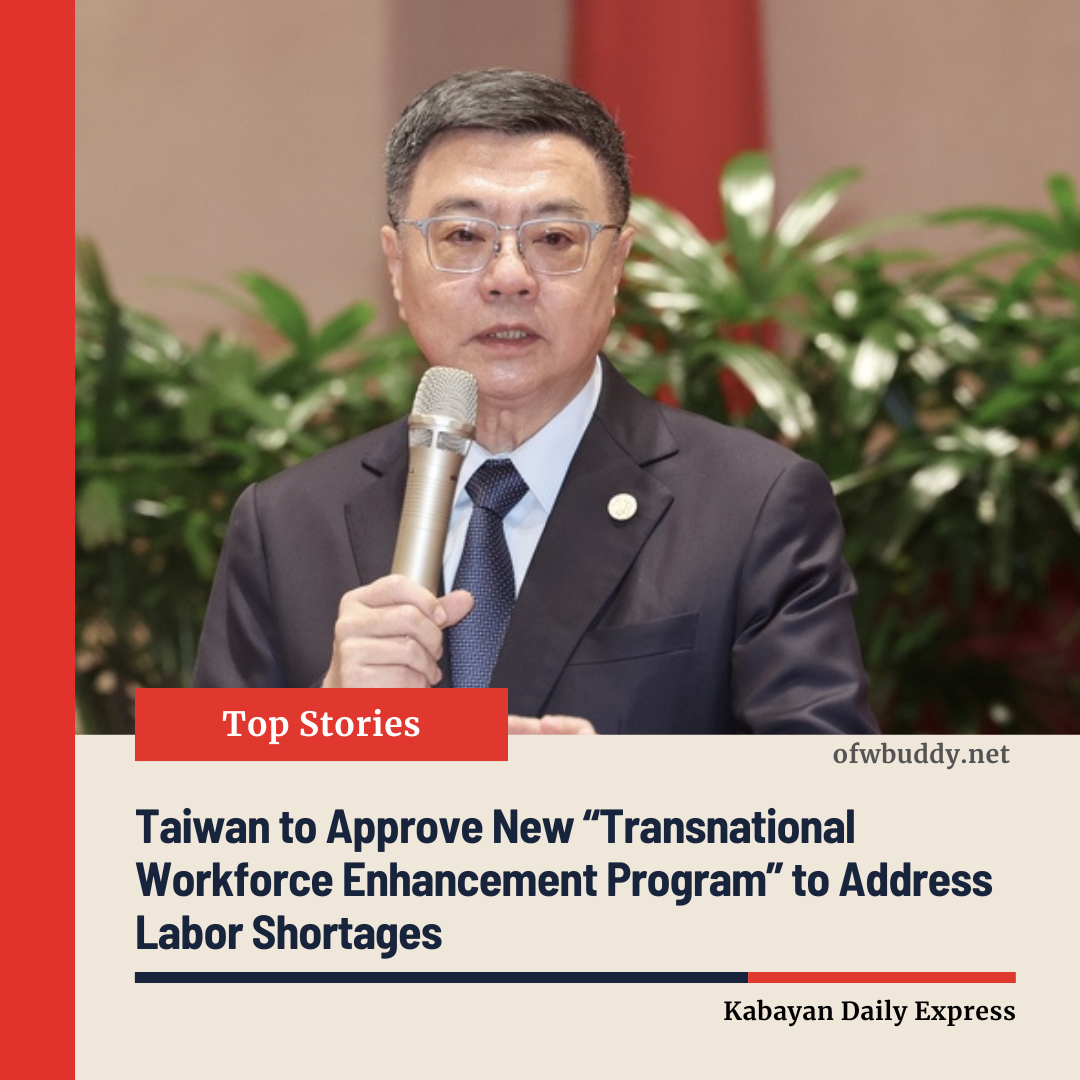October 30, 2025 – Taipei, Taiwan
The Executive Yuan is set to approve a major policy reform titled the “Transnational Workforce Enhancement Program” during its meeting tomorrow. Premier Cho Jung-tai (卓榮泰) announced this afternoon that the plan includes three key measures: rewarding companies that raise local workers’ wages with additional foreign worker quotas, granting permanent residency to long-term migrant workers, and establishing overseas offices to directly recruit migrant and mid-level skilled workers—bypassing intermediaries.
During a meeting with recipients of the 34th National Rock Award and the 27th Overseas Taiwanese Business Rock Award, Premier Cho emphasized that the program aims to help industries fill labor shortages and stabilize production capacity.
“The government will adopt a ‘wage raise for quota increase’ incentive,” Cho explained. “If companies increase salaries for Taiwanese employees, they will be eligible for higher quotas of foreign workers, thereby reducing the overall cost of domestic labor for industries.”
The second policy pillar focuses on retaining experienced migrant workers. Currently, foreign workers must return home after a set period. To improve workforce stability, the government plans to allow senior migrant workers to apply for permanent residency, granting them “national treatment” and allowing companies to maintain consistent productivity.
The third key measure targets recruitment efficiency. Premier Cho noted that the number and speed of bringing in foreign and mid-skilled workers are insufficient. To address this, the Ministry of Labor will set up recruitment offices in major labor-exporting countries, such as the Philippines, Indonesia, Thailand, and Vietnam. These offices will operate under government supervision, ensuring transparency, controlling hiring costs, and eliminating intermediary barriers.
Cabinet member Chen Shih-chung (陳時中) added that under the new plan, manufacturing companies will be able to hire one additional migrant worker for every NT$2,000 wage increase given to a local employee, with a maximum 10% quota increase. The current hiring cap for foreign workers in manufacturing—40%—will be raised to 45%. Companies must continue raising local wages every three years to maintain eligibility. The initiative is expected to benefit 200,000 local workers within four years, launching in the first quarter of 2026.
Moreover, the policy will remove the cap on mid-level skilled workers—currently set at 25%—allowing all qualified migrant workers to transition to mid-level status with mutual consent between employer and worker. However, to protect local employment, the total proportion of migrant, mid-level, and professional foreign workers will still be limited to 50% of a company’s total workforce.
The Ministry of Labor will also establish “Transnational Labor Recruitment Centers” in key source countries, which will work alongside existing job service agencies to improve efficiency through government-to-government cooperation.
When asked whether the new policy will also cover hospitality and port cargo handling sectors, Labor Development Agency official Su Yu-kuo clarified that the reform primarily targets mid-level skilled labor. Once overseas recruitment centers are operational, Taiwan will conduct direct government-to-government recruitment to ensure fairness and efficiency.
The new program marks a significant step in Taiwan’s efforts to balance domestic employment protection with foreign labor integration, supporting industries while upholding fair treatment and opportunities for both local and migrant workers.

